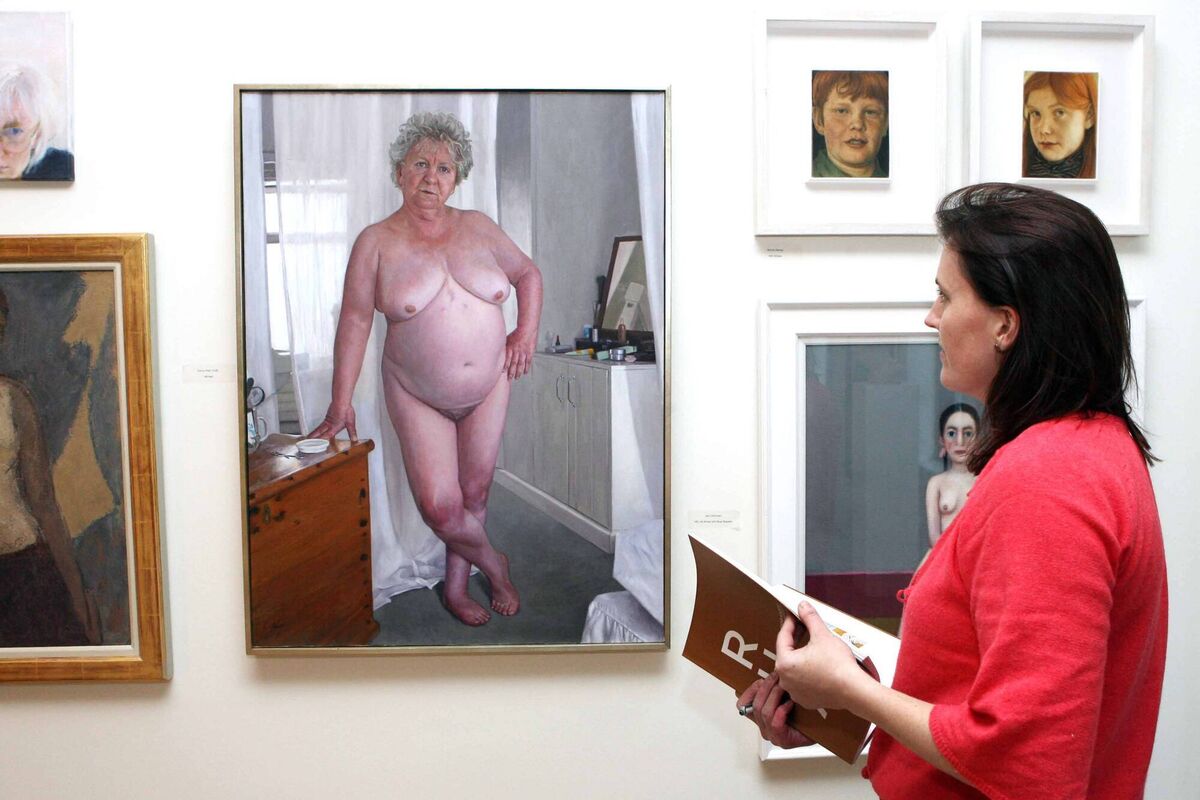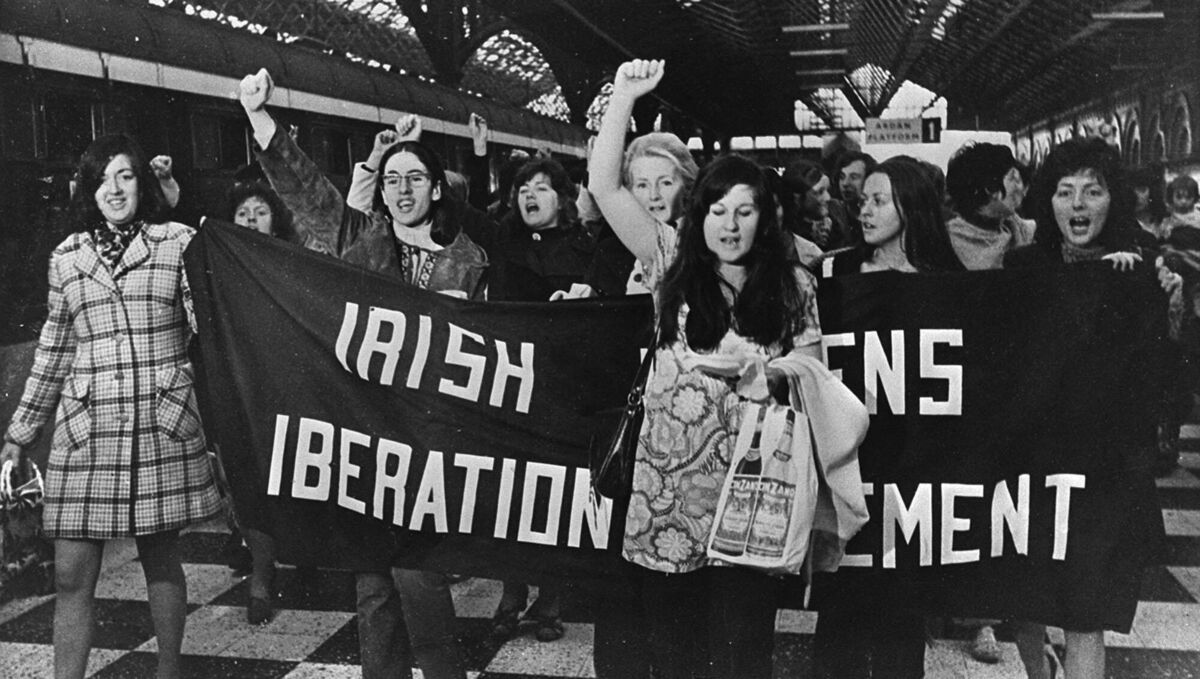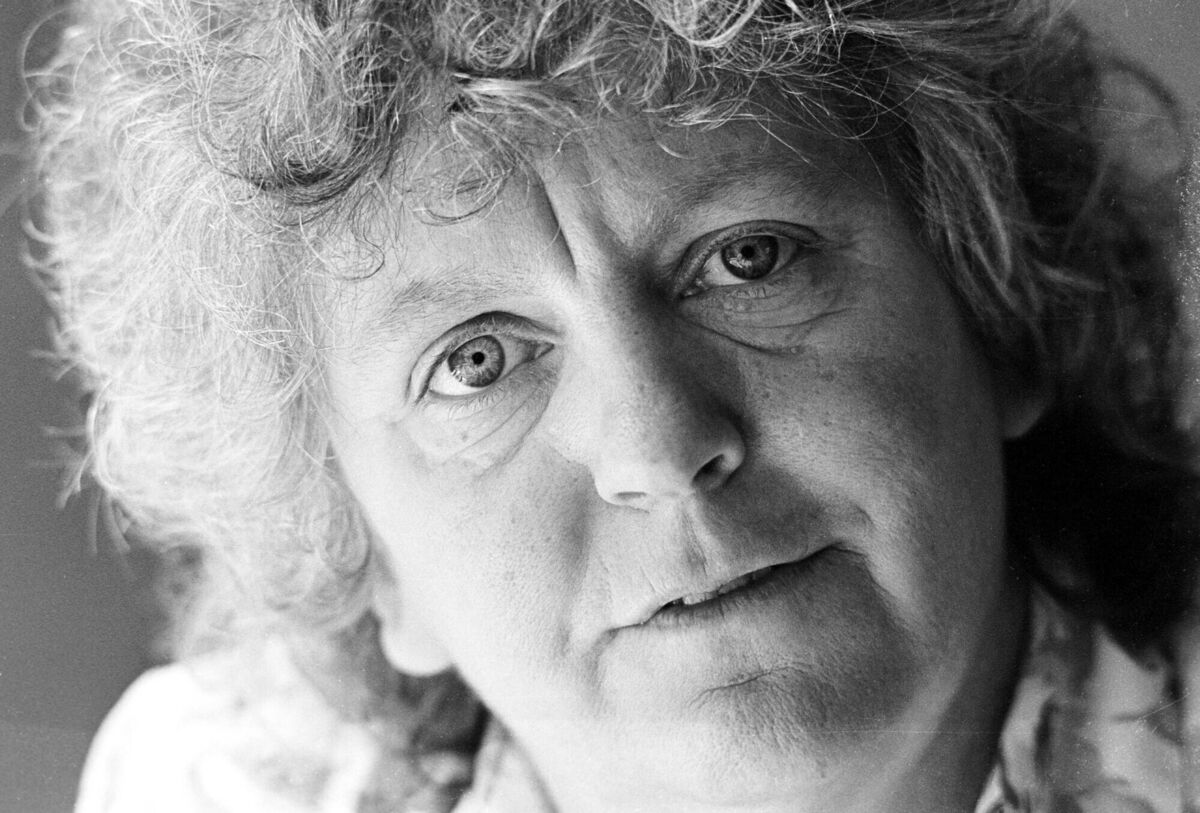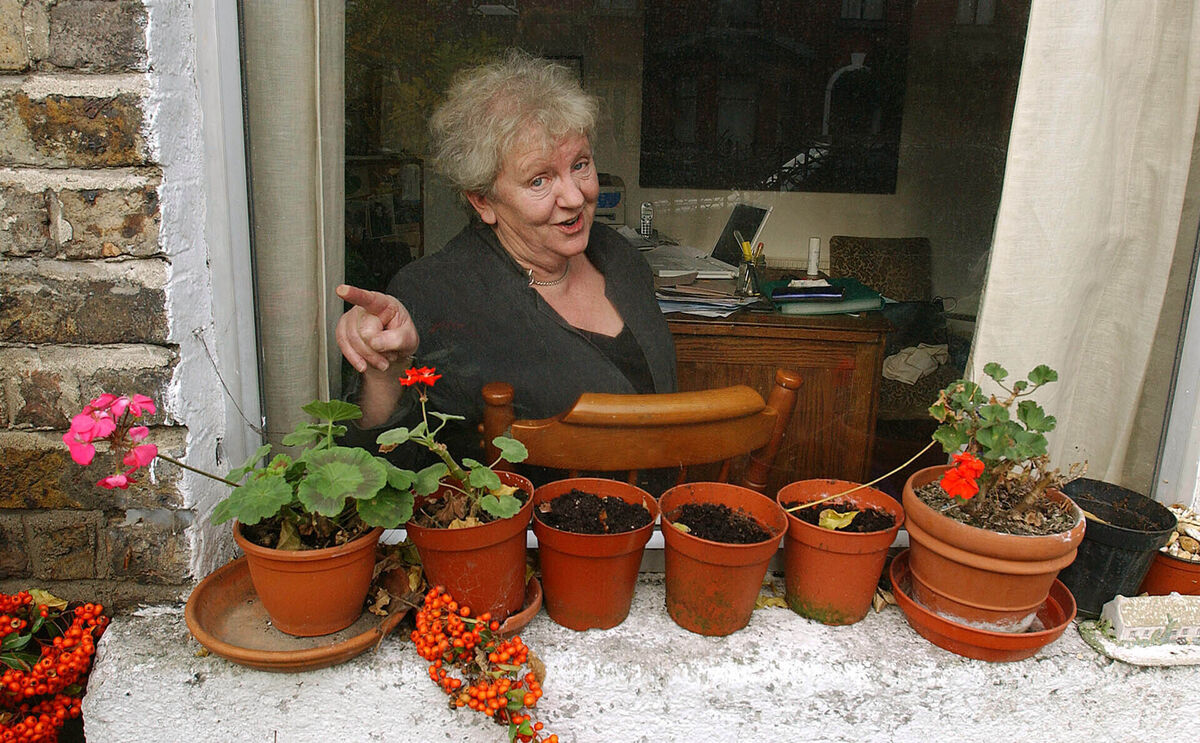Now lauded after her death, Nell McCafferty paid a very high personal price for her activism

Nell McCafferty: 'I’d like to also remember the price Nell paid for being outspoken. For being a woman. For being a woman without a man. For being a lesbian. For being working class. Picture: Eamonn Farrell/RollingNews.ie
The last really good time I had with Nell was when an American artist made a nude portrait of her.
Executed as Nell emerged naked from her bedroom, despite not wearing a stitch, Nell didn’t look naked. She looked like Nell, a little sad, a little quizzical, a little defiant.

I was asked to interview her, in the RHA where the portrait hung.
Within the hour we were surrounded by a crowd of admirers. Nell, Nell, Nell, Nell!
I remembered that ‘ordinary people’ adored Nell.
We met in the 1970s. A fellow founding member of the Irish Women’s Liberation Movement, then darling of the , her column, In The Eyes of the Law, set in the Bridewell, chronicled the “astonishing parade of demented women, vague men and wandering children”, that came daily in front of the judge.
The age of criminality was seven. Children were ‘sent down’ for stealing sweets. Thrillingly, it was written gonzo style. Truth unvarnished, as it happened. One column was about the toilets, reeking and shit strewn. It caused a sensation.
Fresh from the petrol bomb, Bogside barricades, Nell set about making ‘middle class, middle of the road, middle aged’ southern Ireland wake up.
Her working class, Northern Irish, lesbian credentials, were both armour and touchstone. Being an outsider was difficult. It was also a superpower. Lesbians, said the Church, are "intrinsically disordered". Really? said Nell. Refused absolution aged 14, she left and never returned. She was free.
Her genius lay in getting to the heart of things. With 1970s Ireland still in the grip of an authoritarian Church and conservative State, the repressions mainly impacting women, Máirín de Burca, Nell and 12 others of us, founded the Irish Women’s Liberation Movement.
The patriarchy — Church and State — was tackled with zest. We would take it down from the inside, with facts, and figures.
We put together ‘Chains or Change’ — the first time women and girls' situation in Ireland had been properly examined.
From the get-go girls' education was skewed. No science. No higher maths. Almost no university.
When/if she entered the workforce it was as a typist, a cleaner, a factory worker. All properly paid careers — doctor, scientist, editor etc — required maths, which girls didn’t have. If she got a job in the civil service, or bank, once married she had to go.

If she did get married — often a woman’s only survival option — her legal rights disappeared down the toilet. If he got fed up with her he could skidaddle off to England, get a divorce, sell the family home, get custody of the children, and remarry. All legally.
If it hadn’t been so criminal it would have been laughable. Spancelled, with no sex education. No contraception. No abortion. No divorce. We entered marriage, green as cabbages, both hands tied behind our backs.
It wasn’t that men were bastards. It was the architecture of the patriarchy, the rule of the many by the few top dogs. Women’s role was to be servants of men. And produce babies.
One of Nell’s best direct action stunts was the now famous Contraception Train. Forty two women headed to Belfast to buy the Pill, returning with aspirin (the Pill was available only on prescription in the North also), condoms, spermicidal jelly, challenging the embarrassed customs men in Connolly Station to take their ‘devices’. Showing the law to be an ass.
The action’s biggest impact was not the legalisation of contraception — that took another two million years — but a demonstration that the days of the stultifying grip of ‘respectability’ were over.
Hurray!
Another direct action stunt dreamed up by Nell and others was the invasion of the Forty Foot in Dublin. Listed today as one of the top 10 swimming spots in the world, it had been taken over by old fellas who swam there nude. One justification was priests had to have somewhere to swim where they wouldn’t see women. I swear to God.

Hah! said the feminists — and ‘invaded’. Jumping off rocks, rowing in from the sea, rushing in from the land. Walloped with knotted towels, yelled at, pushed into the water, they had naked, old men's genitalia waved in their faces, but eventually the battle was won.
Nell, meantime, was having battles of her own. She loved the high life, champagne, celebrity, mad jaunts, but the North, then in a ferment of bombs, killings, torture, was her lodestar.
Shamefully, many of us in the south didn’t want to know. They were "all mad up there".
Nell took a sabbatical to write a novel. When she returned she found the doors of the closed. A shattering blow. She lost career, status, colleagues. Journalists whom she’d shepherded round the North, who’d slept on her mum’s floor, shunned her. To rub salt in the wound, the gave her friend, then lover, Nuala O’Faolain, a column.
Nell bounced around the windswept wastes of freelance land.
She began to be seen as "difficult". As part of a panel in RTÉ one evening, Conor Cruise O’Brien asked guests if they supported the IRA. Nell, who visited the Bogside every other weekend, saw "the neighbour’s sons" join the freedom fight, said she did. The next day, the Provos let off a bomb which mistakenly killed 11 civilian Protestants instead of the police and military it was destined for. Frantic with horror, Nell tried to explain she supported the struggle, not what the Provos did.
It was too late.
Next, her 15-year relationship with Nuala O’Faolain foundered. Nuala wanted out. She claimed she "never saw Nell as a woman". That she’d climb over 59 women "to get to a man". The same Nuala who’d gifted Nell a red fox fur coat, red silk knickers from Dior? The same. They had never been lovers, she said. "You were my lodger", she told a broken Nell. It wasn’t until she was dying O’Faolain admitted "12 of those 15 years were the greatest fun".

Nell’s banishment from love was compounded when she falsely claimed, on Newstalk, that then minister for health Mary Harney was a recovering alcoholic. The allegation was completely untrue. She might have got away with it in the old days but these were Celtic Tiger days. Everyone was lawyered up. Mary Harney got €450,000. Nell got the boot and a 15-year ban from Newstalk.
In retrospect it seems savage.
The last years of Nell’s life were health-plagued. Functionally blind after a stroke, and multiple medical interventions, increasingly isolated and lonely, she was often angry, that wonderful laugh absent. Her attempts at gaining headlines by interventions such as in the Repeal debate — that abortion numbers were equivalent to mass slaughter at the Somme — were pitiful.
Her family, who rescued her and brought her home to Derry, say they are incredibly moved and touched by the wave after wave of good times recalled by friends this past week. I’d like to also remember the price Nell paid for being outspoken. For being a woman. For being a woman without a man. For being a lesbian. For being working class.
For being Nell.





